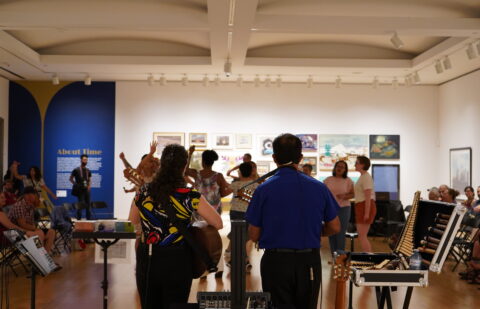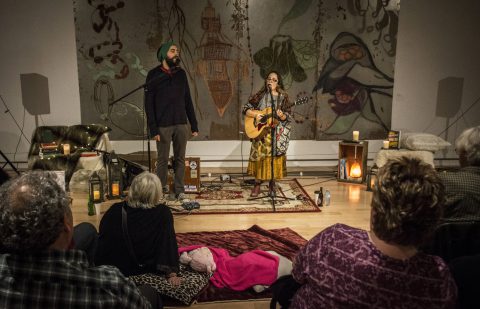By Stephanie Pollard
“There are only two mistakes one can make along the road to truth: not going all the way, and
not starting.” – The Buddha
February’s RMG Fridays touted #BlackExcellence as artists shared their perspectives on what it
means to belong.
Partnering with the Durham Black Educators Network (DBEN), the gallery became a capsule of
memories that showed how families came from various islands in the Caribbean to Oshawa,
and how their experiences have a solid place in Durham Region.
“It’s really about intercultural dialogue. We want people who don’t typically have exposure to
have an awareness of the value that Black culture brings to the community, so that everybody
can understand and be a part of celebrating (this) history”, explained DBEN Chair Eleanor
McIntosh.
According to the Library and Archives of the Government of Canada website, Black people have
been in Canada from as early as 1608, but the Immigration Act (1910 – 1967) prevented
persons deemed ‘undesirable’ from immigrating to the country, leaving a drop in migrants from
parts of Africa or the Caribbean until 1955, when the West Indian Domestic Scheme allowed
single women living in the Caribbean to work in Canada as domestic help for one year in order
to achieve immigrant status. While there is no information about the first Black families who
arrived in Oshawa, there was plenty of opportunity to get into a bit of personal history.
The Gallery A housed momentos that ranged from placemats to wood sculptures, lace
handkerchiefs, and a wedding dress – complete with a veil and gloves – that all told stories of
those who sought better living for their families, and the cultures they brought with them.
Meanwhile, upstairs guests sat down to enjoy the company of Michael St. George and Friends
ensemble, where music and dub poetry explored speaking one’s truth.
“It’s wonderful to be here…I feel like a complete circle,” Michael said as he led right into various
songs, poems and rhythms, with everyone in (timid) participation. The Durham School of Ballet
and Contemporary Dance (DSBCD) also featured performances that showcased pride in Black
culture with a duet to Solange’s Don’t Touch My Hair , and a solo piece called Bloodline .
Embracing diversity means opening our arms to a past that doesn’t let us get away with an easy
narrative, nor does it allow us to live in shame. If we can speak our truths, and acknowledge the
truths of others, we inch ourselves closer to equality.
Join us for another RMG Fridays on March 2, Sugar Moon, at 7 p.m.!


